670K people still in container homes, 2 years after February 6 earthquake in Türkiye
 Promises made, promises broken: Why thousands still live in containers after the February 6 earthquake in Türkiye, Feb. 6, 2025. (Collage by Mehmet Akbas/Türkiye Today)
Promises made, promises broken: Why thousands still live in containers after the February 6 earthquake in Türkiye, Feb. 6, 2025. (Collage by Mehmet Akbas/Türkiye Today)
On February 6, 2023, at 4:17 a.m. (UTC+3) an unrelenting tremor ripped through southern Türkiye and northern Syria while millions were still asleep in their homes.
Walls cracked, ceilings collapsed, and entire buildings crumbled in seconds, trapping families beneath the rubble before they could even comprehend what was happening.
The silence of the early morning was shattered by screams, sirens, and the deafening roar of destruction. In a matter of moments, lives were lost, homes were reduced to dust, and cities were forever changed.
Two years after the devastating 7.8 and 7.5 magnitude earthquakes, which claimed 53,537 lives and left over 107,213 injured, the reconstruction efforts remain a subject of scrutiny.
Promises made to the survivors of the February 6 earthquake have only been partially fulfilled, leaving thousands still struggling in container camps, waiting for permanent housing.
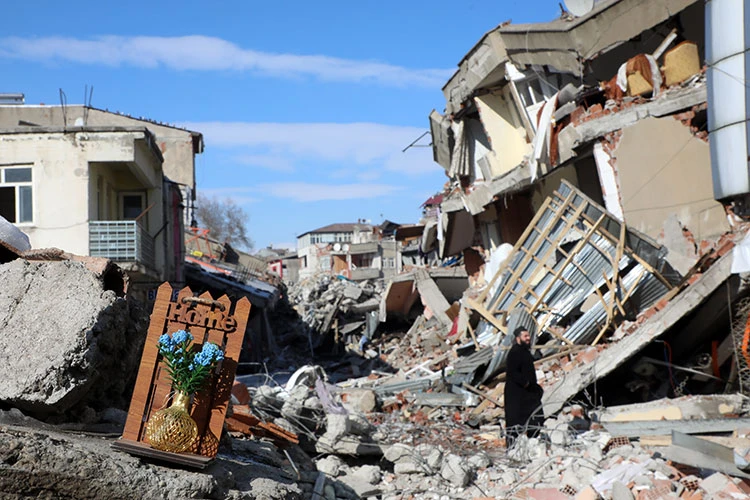
Housing promises: What was pledged and what has been delivered?
The Turkish government had initially promised the construction of 650,000 housing units, with 319,000 to be completed within the first year. These promises looked far-fetched in the face of an earthquake called the “disaster of the century.”
However, despite efforts, as of February 2025, only 201,580 homes have been delivered, far below the initial pledge. The vast majority of the February 6 earthquake survivors remain in temporary shelters, waiting for permanent housing that has yet to materialize.
Here is a breakdown of housing promises versus actual delivery in the most affected provinces:
| City | Promised housing | Delivered housing | Pending housing |
|---|---|---|---|
| Adana | 21,021 | 6,817 | 14,204 |
| Adiyaman | 64,811 | 28,118 | 36,693 |
| Diyarbakir | 21,712 | 7,920 | 13,792 |
| Elazig | 20,261 | 8,834 | 11,427 |
| Gaziantep | 41,922 | 22,423 | 19,499 |
| Hatay | 254,195 | 46,140 | 208,055 |
| Kahramanmaras | 112,414 | 34,600 | 77,814 |
| Kilis | 3,361 | 2,152 | 1,209 |
| Malatya | 103,019 | 26,305 | 76,714 |
| Osmaniye | 20,502 | 7,331 | 13,171 |
| Sanliurfa | 16,782 | 6,503 | 10,279 |
These numbers highlight the massive gap between promises and reality, leaving tens of thousands of people still without proper housing.
The discrepancy between pledges and actual construction raises concerns about the efficiency and transparency of the reconstruction process.
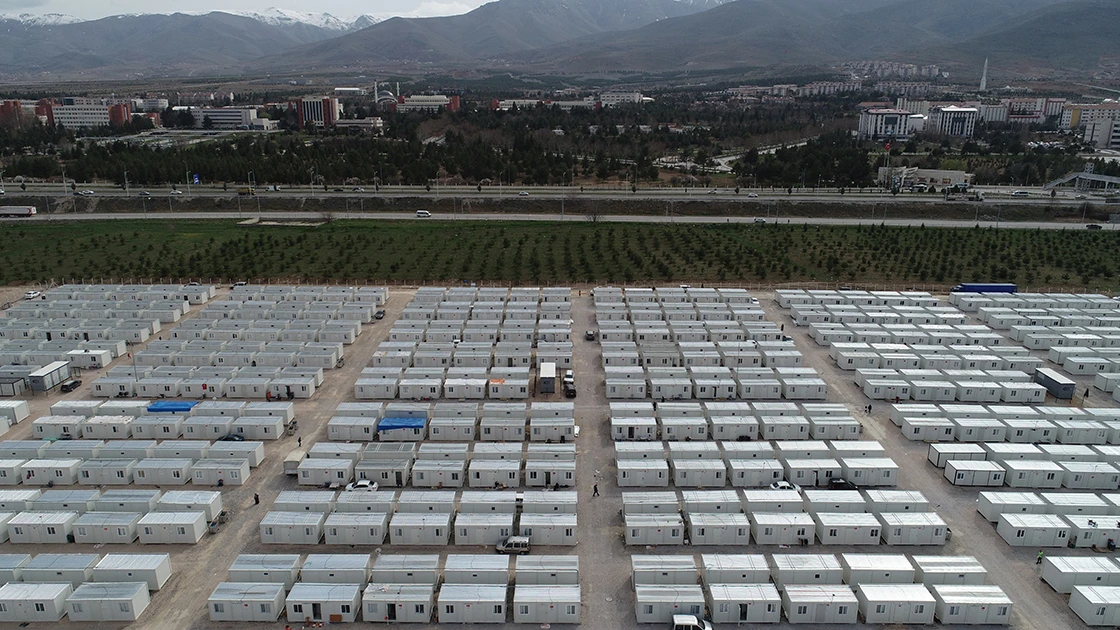
Living conditions in container camps since Feb. 6 earthquake
Despite government assurances, over 670,000 people continue to live in temporary container homes as reported by the Disaster and Emergency Management Authority (AFAD), enduring freezing winters, scorching summers, and flooding during heavy rains.
Many of these makeshift shelters lack proper insulation, making them unbearable in extreme weather conditions. Families struggle with basic sanitation, and reports of illness due to poor hygiene conditions have been increasing.
In Hatay alone, 224,000 people remain in containers. Residents report poor infrastructure, frequent power outages, and inadequate sanitation. Flooding has become a regular issue, with rainwater entering the small metal shelters, leaving families without electricity for hours or even days.
Some survivors have resorted to makeshift repairs, covering leaks with plastic sheets or trying to insulate their shelters with cardboard and blankets.
Like the buildings awaiting demolition, we are also waiting to collapse. We are severely damaged, yet nothing improves. They are building houses, fixing the city, but we are not okay. Help us stand on our feet first, then build the houses.
I lost 229 members of my family and friends. Life seems to go on for others, but for us, it has stopped. I miss my home, I miss switching on my own light, cooking in my own kitchen, and providing comfort to my grandchildren. Without these, how can we say we are fine?
February 6 earthquake survivor in Adiyaman
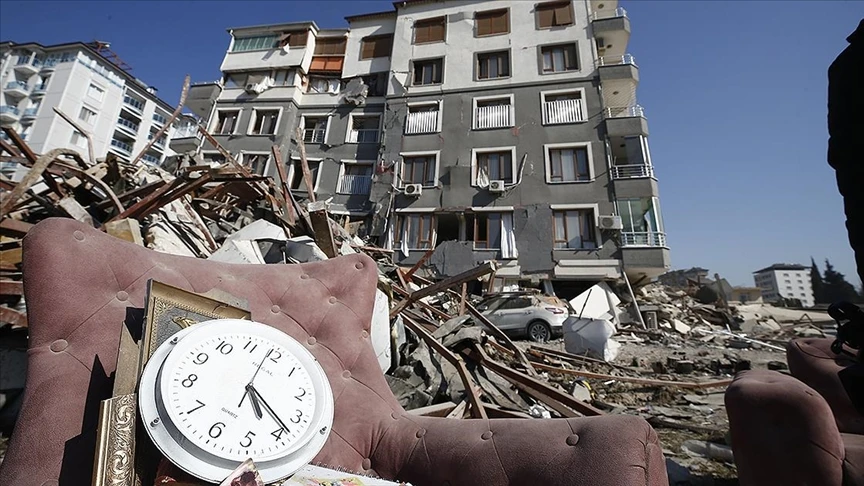
Education, health care remain in crisis after Feb. 6 earthquake
- Schools: In Hatay, 210 schools were destroyed, and 110 new schools have been built, but 88 of them are in containers, lacking proper facilities such as internet, sound insulation, and playgrounds. Many students are forced to attend school in shifts, starting as early as 6 a.m. and finishing late at night. Teachers have described the situation as “a fight to keep children in education” as many students struggle with concentration and motivation due to poor learning environments.
- Hospitals: In Hatay, 56 family health centers collapsed during the earthquake, yet not a single one has been rebuilt. There are 71 vacant family doctor positions, and 100,000 residents lack access to basic healthcare. Patients needing intensive care are often transferred to nearby cities due to a lack of hospital beds, sometimes resulting in avoidable deaths or long-term disabilities. Many survivors of the February 6 earthquake report difficulty in accessing even basic medication, as pharmacies remain undersupplied.
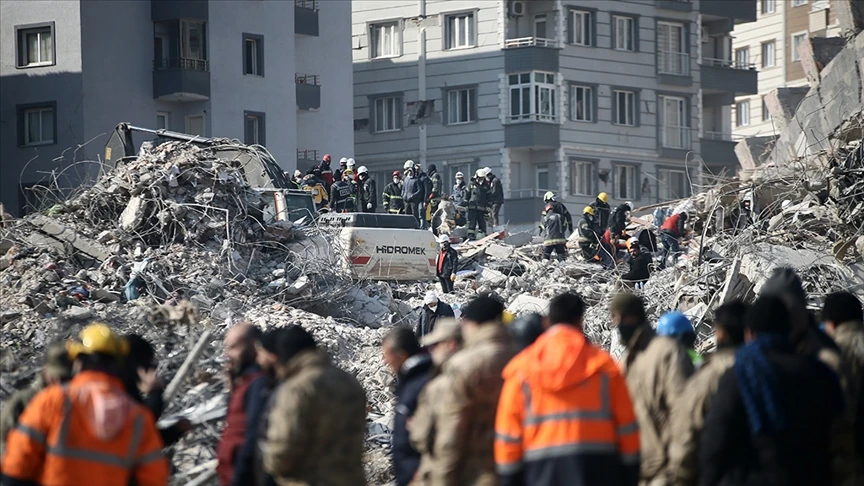
Unfulfilled financial aid promises: ‘We received homes, but we can’t pay for them’
While thousands of homes have been allocated through the Housing Development Administration of the Republic of Türkiye (TOKI), many survivors say they cannot afford the payments. The financial burden of reconstruction following the February 6 earthquake has largely fallen on residents who have already lost everything in the disaster.
Survivors of the February 6 earthquake have repeatedly requested government assistance in covering costs, but many feel their pleas have gone unanswered.
We received homes from TOKI, but how are we supposed to pay? We simply don’t have the means. If they had given us proper jobs and let us get back on our feet, maybe we could manage. But we are barely surviving. There is no work, no money, and no help. How do they expect us to rebuild our lives like this?
A Kahramanmaras resident stated
After the 2011 Van earthquake, the force majeure (mucbir sebep) status, which provided financial relief, remained in effect for six years. However, despite the far greater scale of devastation from the February 6 earthquake, the government ended this status after just 22 months, drawing widespread criticism.
- Limited extension: The government extended the status until May 31, but only for businesses with an annual turnover below $70,000 in 2022. Thousands of struggling survivors remain ineligible.
- Stricter debt repayment terms:
- After the Van earthquake, debts were spread over 30 installments (one payment every two months) for a total of 60 months.
- For February 6 survivors, debts must now be repaid in just 24 months, with monthly payments instead of bi-monthly ones.
- Additionally, they must submit a written application and provide collateral, adding further hardship for those who have lost everything.
- Business struggles and economic setbacks:
- Local businesses in disaster-hit areas have struggled to secure contracts, as many reconstruction projects have been awarded to firms from outside the region.
- With industries still in crisis and unemployment rising, many families remain without a stable source of income, making financial recovery increasingly difficult.
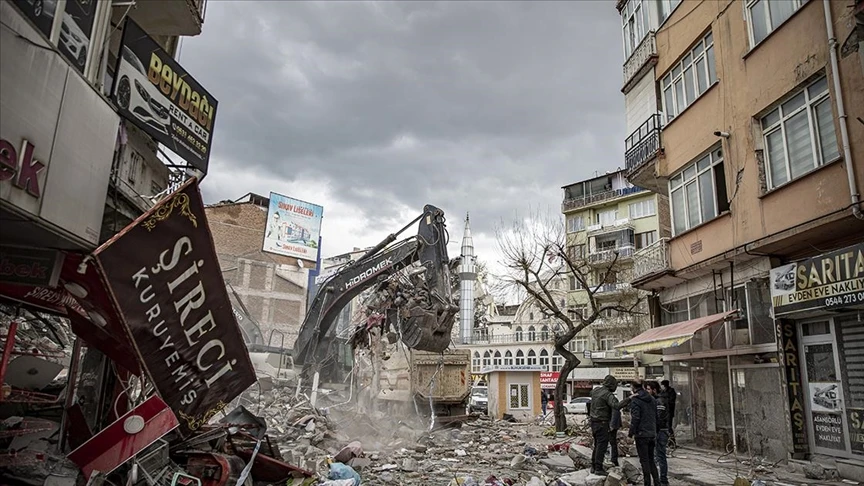
Legal accountability after February 6 earthquake: Delayed justice and missing suspects
The legal aftermath of the February 6 earthquake has been slow and deeply controversial.
- 2,031 investigations have been launched into collapsed buildings.
- 1,397 indictments have been filed in court.
- 130 individuals have been sentenced, but 19 key figures responsible for deadly building collapses remain fugitives.
Among those still at large are contractors, engineers, and government officials who failed to enforce earthquake-resistant construction laws. Families who lost loved ones continue to fight for justice, demanding accountability from both private contractors and government officials who approved unsafe buildings. Many survivors argue that until full accountability is ensured, real progress in disaster prevention will remain out of reach.
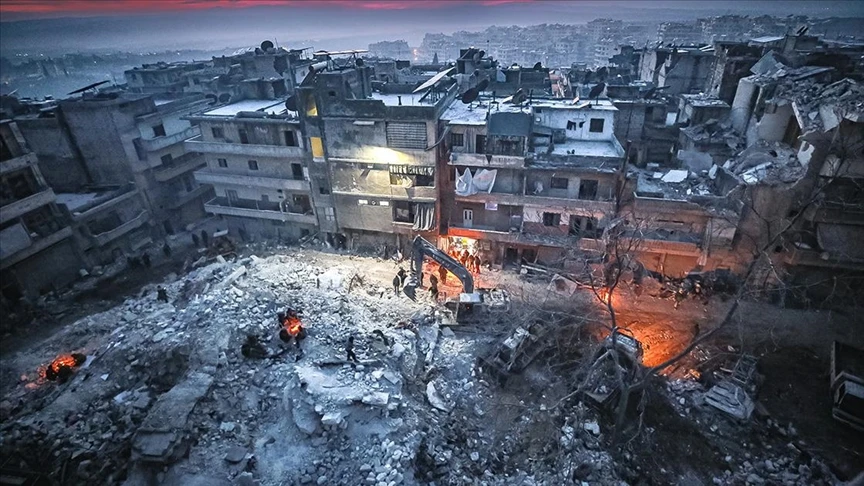
What still needs to be done for the victims of February 6 earthquake?
- Accelerate housing reconstruction: The government must speed up construction efforts, ensuring that homes are built with proper infrastructure so that survivors can finally leave the container camps.
- Ensure financial relief for survivors: Loan payments for earthquake survivors must be adjusted or forgiven, given the economic collapse in the affected regions.
- Prioritize education and healthcare restoration: With students still learning in container schools and hospitals lacking basic resources, rebuilding permanent schools and healthcare facilities must be a top priority.
- Improve legal accountability: All responsible parties, including fugitive contractors and negligent officials, must be brought to justice. Delayed trials and incomplete investigations only increase public distrust in the system.
Despite repeated promises, tens of thousands of earthquake survivors remain displaced, struggling with poor living conditions, economic hardship, and unfulfilled pledges. There is no doubt that Türkiye must now ensure that the victims of this disaster are not forgotten and that such a tragedy never happens again.



